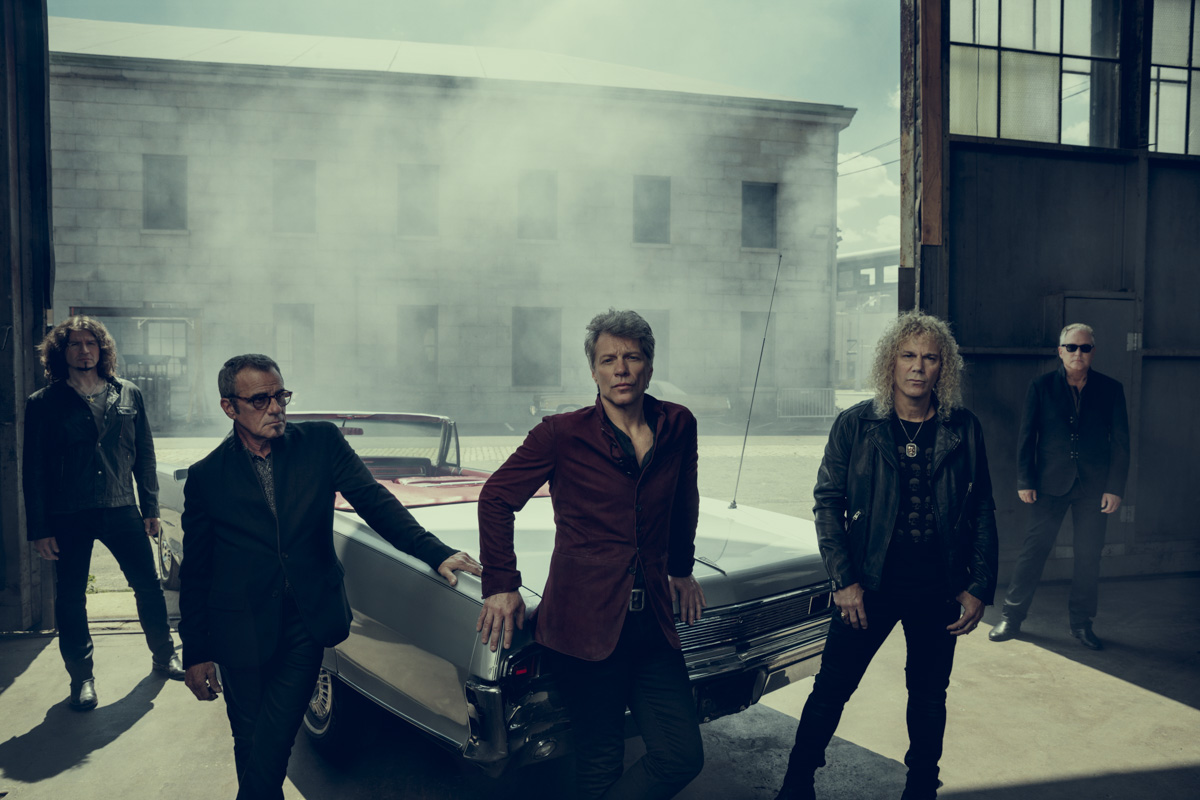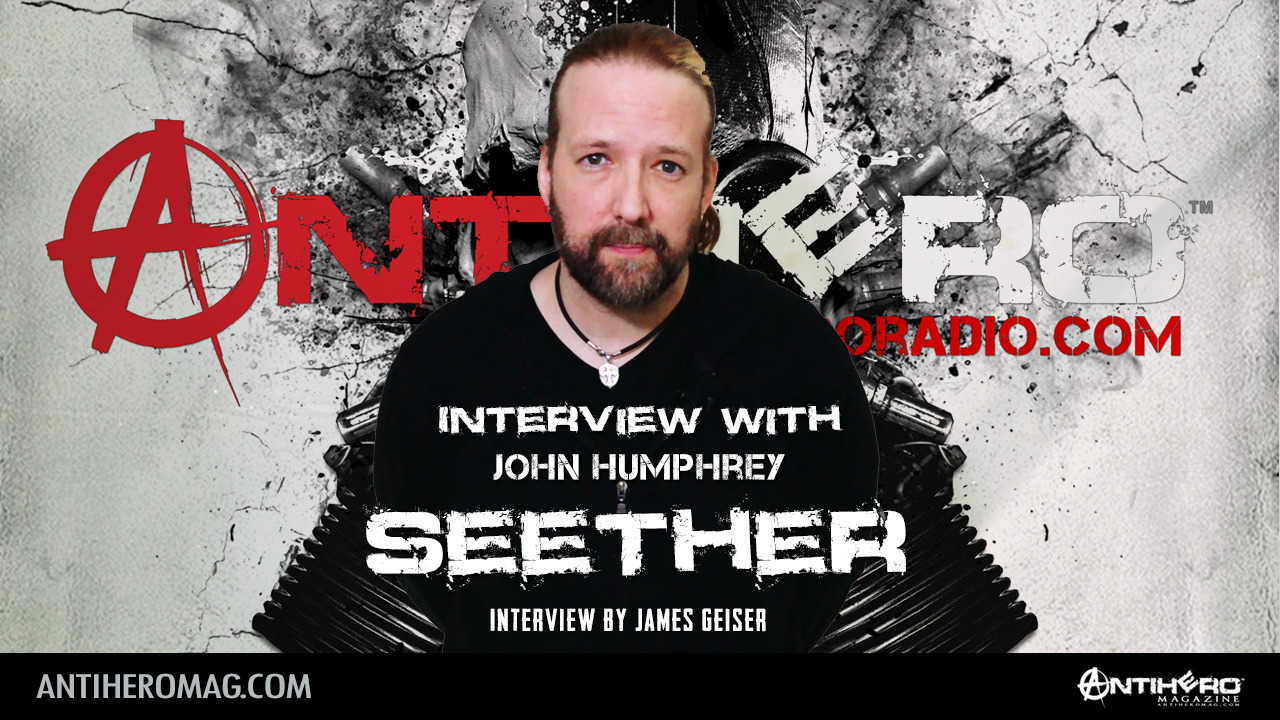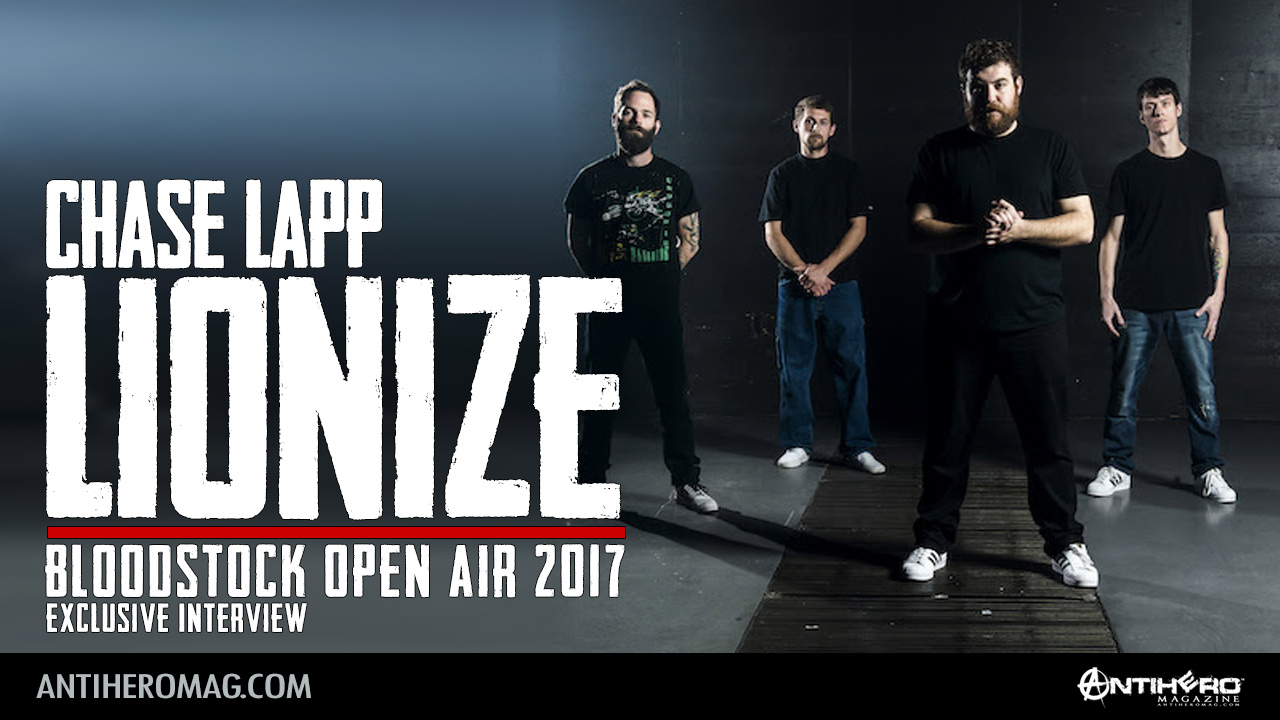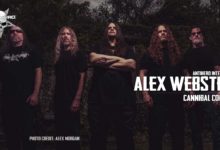Bon Jovi Teleconference
David Bryan & Tico Torres
attended by Mark Dean
On September 30, 2015, Jon Bon Jovi announced during a press conference that the title of their upcoming album will be This House Is Not for Sale. In the article, he said the following “The record is about our integrity. Integrity matters and we’re at a place in our career where we don’t have anything left to prove.”
The album’s lead single, “This House Is Not for Sale,” was released on August 12, which also featured the promotion of unofficial members Hugh McDonald and Phil X to full-time band members. Antihero Magazine were among the lucky media sources who were invited to attend the international press conference in October 2016 to talk about the new album, upcoming tour, and all manner of other subjects.
The opening question asked the band members if they could offer any reason to explain their enduring popularity.
David Bryan: I think for us, really, we say we’re a current classic. We strive to have new records. We strive to have new songs on the radio. I mean, we’ve got our 14th record coming out, and hopefully it’s another number one record. And that feels good that we can gain those new fans and still bring our – our fans have been there with us for some of the ride, all of the ride, to keep on the ride.
Bon Jovi have been responsible for many love songs over the years, their current tour includes a Valentine’s Day show in Tampa. However, did the musicians have any favourites in that category from their back catalogue? Would the new album serve up another in a similar vein?
David Bryan: Tico, I answer for Tico. I help him out. Tico likes “Always,” and he really likes “Bed of Roses,” like you said. And then he likes the new one on the Bonus track, “Real Love.”
Tico Torres: “Real Love,” yeah. That’s my favourite. You know, at my age, I’ve got to revert to my younger friend. Always at home. I mean, it’s one of those songs that’s very intimate. And I think it speaks to everybody, which is kind of nice.
Even though guitarist Richie Sambora had left Bon Jovi back in 2013, people are still given to ask questions regarding him. The band members handled those well as if they were to be expected and not just tolerated. This would be the first album to not feature their former guitarist. Did the change in the band chemistry make for a different and difficult recording experience? How had his replacement, Phil X, fit into the band dynamic in the studio and recording process?
David Bryan: You know, as far as Phil X, he has Canadian roots. He’s helped us out quite a few times in the past. And John Shanks has been with us, producer, who is more than a proficient guitar player – amazing. We’ve been working with him for quite a few albums, and the fact that we recorded everything in one room together, predominantly with John Shanks, just adds a flavour to it. It was the old way of making records, you know, everybody in the room, and trying different tempos and melodies, and an immediate response for what we’re doing. So, John was kind enough to join us on this next tour, as well as Phil.
It’s a different thing, but there’s new life, and I think when you have new people, you have new energy. And, of course, the creative process, the way we’ve worked together, is working with each other in the room. And the song dictates. And if everybody’s on the same page, it makes beautiful music. You know, of course, we had some wonderful years with Richie, but if he wants to move on in his direction, it’s one of those things that you can’t avoid, and we carry on, because the premise of this record is, “This House Is Not For Sale” is the roots, and the fact that we’re still together and strong and love playing music together.
Had Billy Falcon now filled the role of songwriter instead?
David Bryan: Our producer also covered a lot with John and with Richie. So, it changed a little of the dynamics a little bit, I think. But at the end of day, like I said, it wasn’t our choice. You only can control yourself, and he just didn’t want to be here. So, that was his choice. And we decided to carry on. So, I think musically, for this, we just came into the studio, and said, “Let’s do this one almost more old school,” where the last couple of records were different. But this one was getting in the studio, looking at each other, bashing it out. We did it at the Avatar, which used to be the Power Station, where we originally started. We made our first record there in ’83. And it just felt good, and it felt good to get in there and take these songs and build them together. And that was John Shanks, myself, Hugh and Tico and Jon. And then Phil came in and played a couple of solos. But it was – that was the core then, over the last year, of making this record. And I think it’s musical. I think it’s – you know, we’re going to keep our commitment is to keep carrying on, because we like to make music, and it works for us.
Tico Torres: Just to add on, you know, the three-year period since the last record, I mean, the band itself also went through a lot of angst. Richie’s a brother with us for many years – not something you brush off. And, of course, time heals wounds, and music heals everything. So, at the end of the day, it’s not like we’re brushing them off, but it’s just something you must carry on in your life.
With yet another tour fast approaching and with the bands extensive back catalogue did the band find set list composition for a tour a difficult and arduous task?
David Bryan: It’s funny. We try to change the list every night. I mean, there’s certain staples that people expect and probably deserve. I mean, I remember when I was very young and going to watch three of my favourite bands in one night, I’d want a hit. I want to hear the songs that brought them to that pinnacle of success. And we try to keep those in there. We change our sets just about every night. And we have a big roster to pick from, so depending on the shows, we get to play with them and bring them in and out, which also makes it fresh for us and great for the audiences. You know, we try to do as long a show as possible to fit them all in. 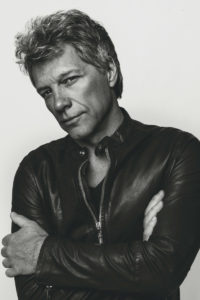
The new album This House Is Not For Sale has previously been described by Jon as “The record is about our integrity. Integrity matters and we’re at a place in our career where we don’t have anything left to prove.” I know you guys talked a little bit about the old way of making music and getting together and doing it organically. Does that kind of play into the theme as well?
David Bryan: Yes, I think, I mean, it started with Jon – saw a picture, which is the album cover and said, “You know what?” And he looked and said, “This House Is Not For Sale.” And it represented integrity. It represented, you know, there’s going to be – it’s not for sale. We don’t want this to end. It’s not going to give it away. And that’s it. And it is integrity. And then it started, like he said, it started with I, my heart, my soul. This heart, this soul. And then at the end, these again, so come on up to this house, which is inviting everybody in. So, I think it’s like a journey of the themes where we’re at is in that record.
Bon Jovi’s previous album, Burning Bridges, was viewed more as a contractual and obligational album. So, how was making This House Is Not For Sale sort of different? Bon Jovi have the roots of This House Is Not For Sale, in that you guys have your specific sound, so does that play into how this album sounded versus the last one?
Tico Torres: That’s an interesting question. Both have messages. And more importantly, is the message now. It’s always – it shows where we’re at right now, the way we feel, not only in music and mentally, but also has that optimistic, which has always been inherent in our music. And it’s a message that we live by personally, so it’s nice to be able to convey that musically. So, they’re both two different animals, I would say.
Bon Jovi’s live shows are legendary, and I have personally experienced them many times over the years. They seem to have a very raw and emotional quality despite the band having existed for such a long period. Would it be difficult to convey that feeling into the newer material which they would be preparing for the forthcoming tour? I note that the band are playing a few selected shows ahead of the main tour during which they would be featuring the new album in its entirety.
Tico Torres: Yeah, I mean, it’s a lot of fun to be able to do sort of a listening party with what we call “Friends and Family” for where it’s a story telling what the song’s about. And the fact that we could play the record live, you know, you record it’s spontaneous, and then to lay it down. And usually, you’ll end up doing a couple songs or if not more from a record, a new record on your tour. This concept of doing it before the record’s out and doing it in a small forum, where you can explain the lyrics and the story and the reasoning behind it is for me probably the unique forum to be able to show your music and the work. We had to relearn these things. It’s odd when you create, you don’t remember it, and you must go back and listen again. So, the fact that we could perform it – it’s almost immediate gratification in a sense, because you’re sharing it at that moment for the first time, not only with yourself, but with the audience. So, it’s a unique experience to do these four shows like that.
Given the band’s success on the This Left Feels Right album, which featured alternate versions and many acoustic versions of Bon Jovi songs, would the band ever consider doing a tour of acoustic songs in intimate small venues?
David Bryan: I don’t think so – you never know, but I think what we like to add to our shows that we’ve done in the past is to come out and do like an acoustic part of it, where we come in and sing a couple of songs and do it acoustically. So, that could be something there. But not a plan for an acoustic tour. You know, this, what we’re doing now, is a live listening party. It would be four shows in New Jersey, London, Toronto, and then New York. And that’s just to bring the record in its entirety – 15 songs. That’s what that is. But there will be a segment where we would play acoustic. [separator style=”line” /]
I then moved on to ask the band my standard question that I usually ask, and causes some anxiety and delay in terms of response.
Mark Dean: Given that you’ve both done many interviews over the years since the bands inception, I just wondered if the roles were reversed, and you sat in the interviewer’s chair, who would you pick, maybe a personal inspiration or an icon, for you to interview?
Tico Torres: What question would I ask an icon? You know, that’s a great question. You know, there’s a few people, but the cool thing is – I can’t think of one, because I met him. One of them was Miles Davis. And the question I did ask him is, “How much do you love music?” And the answer was interesting. The answer was it’s part of him and of me. That was a question I asked directly. If I was to ask somebody else, let me think about it. You know, it’s hard being in an interview, because you must ask questions that are not written down on sheets that people give you or line up to finding out what the person’s about. I think the best question is why you do what you do. And the answer that we come up with is we love it. [separator style=”line” /]
The band have had many, many different messages and many different spiels to an album. Now, This House Is Not For Sale, is now the bands 14th. I listened to Bon Jovi’s new single and it seems to be more of a refined sound to the band. You’ve identified a more modern sound that you want to keep. I wondered how this new record compares to the other 13 albums before it?
David Bryan: I don’t know. I mean, a lot of the records always have a writing message whatever you’re feeling at the time. And it’s a snapshot of where you are at that time; when you’re 21 years old, you’re not going to write like you’re 50 years old. So, it’s life experience. It’s your age. It’s all those combinations of where you’re at, just a snapshot. So, each one is where we’ve been at. And this one is where we’re at – a different world. It’s the first record, really, without Richie, and we were built up on our integrity of what we wanted to do. And it’s our choice to stay here. And we went into the studio and said, “Let’s bang this thing out as musicians looking at each other,” all of us in the one room together, which we were. And then taking songs and building these songs and breaking them down and trying them different ways and making it a cohesive, from the band, from us guys, in there making this record. So, yeah, that’s why it feels like it has that different kind of energy.
I’ve seen Bon Jovi many times over the years, the first time in Dublin with Lita Ford on the “Slippery When Wet” tour. Since then, you’ve sold 130 million records. You’ll soon be approaching your 3,000th concert, played all over the world, countless gold and platinum albums – one of the greatest live bands ever. How do you personally view the bands musical legacy?
Tico Torres: It’s almost hard to do that. If you try to do that we’re still going forward, if that makes sense to you. You know, if you look at the past, and we’re blessed. You know, and then sometimes we hash over the difficulties if we talk about before “Slippery” and how we had to tour the whole world just and learning. And as the band at our craft and writing and everything, then the joy ride, you know, the third record that was so big. It was just the right time. And then, you know, after that, it’s usually, you’re going to try and beat your last record, and it’s a big circle. And I think what we learned through time is currently, just to do what we feel, live more in the present, and it just helps us to create with a little more freedom.
David Bryan: I think we do say “wow.” We don’t go “wow, let’s stop.”
Given that the band have been working as professional musicians for such a long time, what would have been their first introduction to music. Can they pinpoint that moment?
Tico Torres: I’ll tell you a funny story. When I was a kid, and the Beatles were in New York, and I lived in New York, my mother got tickets to the Ed Sullivan Show. And I also had this double raincoat – you turn it inside out, regular coat, raincoat on the outside. And we’re on the way to the show, and she gave me the tickets to hold, and there’s so many pockets in this thing. And when we got there, we couldn’t find them. And so, the first show I’m supposed to go to is the Beatles. And I think that’s what got me into music. So, I felt bad, and she got me tickets, again, to the Ed Sullivan Show. I saw The Fifth Dimension, which was nowhere near as good. But that’s what jump started me. I mean, the show I didn’t go to, but the show, I guess, the band that musically got me enticed to be a musician would have to be the Beatles.
David Bryan: The first band I saw was 1975, and I saw – it was Kiss was playing at Madison Square Garden, and my parents let me and my friend go, because we took a train from Jersey there and went upstairs. I saw them. I sat in the last two seats with my back against the wall up in Blue Heaven, up there, we used to call it. And I remember just looking down and seeing this – whatever it was – phenomenal, amazing show and a live concert. It just was amazing. And I remember I looked at my friend, and said, “You know, one day I’m going to be down there looking up. I want to do this.
The track on the new album, “New Year’s Day,” is described by Jon as the song that came together when all you guys played it together in the studio, and then it turned into something completely different than what he envisioned as far as the feel of the song, that it ended up being more like an anthem. I wondered if the band could attempt to explain their creative and songwrighting process? To identify how the Bon Jovi musical chemistry is created, so to speak.
Tico Torres: Yeah, I mean, you know, there’s a lot of ideas, and they’re embryos when they come in. And one of the words that we don’t use in the studio is “no,” because it cuts off the creative process. So, we’ll try everything. And it was in a three-four field, waltzy, and it wasn’t doing anything for anybody. And then it just – I started playing around with the rhythm, and David started playing. And we took it to another level that was completely different, and then suddenly, everybody’s joining in, and the song started becoming – we started doing the song justice. And you know, you should exhaust all avenues when you’re creating. And you know, it’s a process. It’s a process, but it’s completely creative, and one of the nice things is it is present time. In other words, you’re right in the present. You create there, and then you record it. That’s why we hadn’t rehearsed it through these other songs, because you must learn what you did. But that song’s just a whole other, like complete right-hand turn.
David Bryan: And that completely was the theme of this record, was going into the studio, taking the songs, playing it together as a band, changing it around, ideas, everybody can pitch in, and everybody would transform it into something else. So, it was truly collaborative.
The four album-playback shows had generated a lot of press in their element of exclusivity. Could the band members explain a little more in to the ideology behind those specific shows?
Tico Torres: It’s a storybook, almost live painting, documentary of the album, which is interesting because you haven’t heard it. The audience hasn’t heard it. We give a playbill out with all the lyrics. And not only is there music, but there’s conversation. And it is sort of an inside look of what that album is completely about. So, I think it’s a different format for most people. A lot of times, a new record comes out. People sit in a room, listen to it, have a few drinks, and by the end of the record, they’re talking. They’re not listening to it, so this is a different way, not only for us, but for who’s there. You know, it’s a special time.
David Bryan: Yes. It’s a live listening party. We’re playing 15 brand new songs, and Jon’s giving you stories about the songs, the inspiration, the band, the recording of it, all different stories, and it’s a great way to present our new record.
The band’s global success is widely recognised, but there still seems to be a particular element of snobbery and politics with regard to having them included in some music organisations like the Hall Of Fame. Has the band been able to offer up any explanation for what, to many, seem to be crazy decisions by the governing bodies?
Tico Torres: Well, it’s not our decision. I guess when the train goes around and goes around, you eventually get in there. There are a lot of great artists that deserve to be in there that are not in there either. I guess you can only fit so much each year.
David Bryan: You know, one of my good friends knows something about that. We’re one of America’s great exports, because we can go around to 50 countries around the world for the last 33 years, bringing the message of American rock and roll. And still doing it. A current classic, not just playing old songs, but playing new songs and having number one records and number one singles. So, for us – we just do what we do, and we’ve always been a band of the people. And we will always remain a band of the people.
Billy Falcon seems to have become more of a key element in the Bon Jovi song-writing process in recent years. Could the band members attempt to explain his involvement to the Bon Jovi team?
David Bryan: They are different. Whoever Jon co-writes it with or writes themselves, whatever that is, that comes in as the start, if you will. And then once the start is given to us, then we take it, and then we make it into what we are. So, I think it’s the process is probably about the same, really. And we take that, and we give it a voice. You know, all the keyboard parts and chord changes and Tico’s drumbeats and different baselines and guitar lines, and all that stuff has nothing to do with the original. It’s something that we make it into ours, so I think it’s part of the process, and it’s a whole process.
Tico Torres: And also, I mean, because of the issues of technology and the fact that separation in the studio has become more of the norm, and then we change our methods, and what we try to do is put everybody in one room as opposed to separate little cubbies, doing overdubs, and this way, everybody plays at the same time. That’s the old style that we used to do, and it was nice to go back there. As far as getting to the point of the creating and the playing back and forth, that is basically the same as we’ve been doing it for years. It’s just the process of recording. It was nice to be altogether. I’m looking at John Shanks. He’s right next to me. Hughie, David, you know, you have Jon in the booth, looking at him. And the fact that we can create that way just gave it a better vibe. I mean, some songs were – the dynamics of it – it’s one take, and it was just magic. So why do it again? Do it all at once.
Given the band’s long successful history of both recording and playing live, do they still experience pressure and anxiety ahead of a new album release and subsequent tour? Or, is that simply just something that they don’t suffer from these days?
David Bryan: I don’t think we feel pressure or any expectations. I think what we do is, we don’t have to do it. We want to do it. And we enjoy to do it. And we love to do it. So, I think for us, we’re just going to go out there and pour our hearts out, and that’s what we’ve always done. So, it’s not a matter of anything except we’ve been fortunate enough to get the opportunity that we can go and play, and do what we love and love what we do. Yes, I’m going to stop when I’m 100. I put a limit on myself. When I’m 100 years old, I am going to just wing it off the road.
Tico Torres: And this is Tico. When he’s 100, I’ll be 110. So, who knows? You know, we’ll see where life takes us.
Since the band first started out in New Jersey back in the eighties, the music industry has experienced many upheavals and changes. What would have been the most significant?
Tico Torres: I think a lot of it is sticking to your guns and not trying to be anything but honest, and still be current sound-wise. You know, one of the interviewers mentioned – today we’re doing interviews all day. And they said, “You know, I heard this song, and it still sounds – I could tell right away – it sounds like Bon Jovi.” That’s a compliment, the fact that you could still have that signature sound after so many years without completely, and of course, you must grow. We’re not going to be doing “Livin’ On a Prayer” and so on. If we stayed there in that genre, we’d probably dry up, so the fact that we can do this stuff and continue with our sound and feel – I mean it’s us. It’s not manufactured. It is what life has given us to write about, and what we live and what we think about ourselves as musicians and artists who keep painting the picture.
David Bryan: Keep attacking. You know, keep forging forward. Hmmm. I guess, you know what, we’ve – good question. I think we’ve been – it takes a lot of hard work to get lucky. And we’ve worked really, hard – really, really, really, hard, and we got some good fortune. So, I think I just would tell myself to do what the hell you did.
Tico Torres: I’d give you advice.
David Bryan: I don’t want to hear it though.
Tico Torres: The advice is, you don’t have to carry the equipment.
David Bryan: Oh, it’s true. I’d be a harmonica player. It’s lighter.
Tico Torres: You know, when we started out, he’s this guy that had to have a van, had to have a truck because we had all these instruments. Just a little levity.
David Bryan: You know, never underestimate the new generation, because now the new generation is starting to get – I have kids, and we see it, and people talk to us, kids, and saying – our younger folks are saying that you know, they’re tired of that, and they’re like, “We’re going to go to vinyl, because we want to do this new thing. It’s like a record, and you actually can play from the beginning to the end.” So never underestimate when people just get bored of a technology, and the new thing is to go, sometimes the new is old. And that seems to be happening beyond the streaming and beyond people just clicking for $1.29 and getting the single. I think they’re starting to get a little bored with that. And we’re releasing our stuff on vinyl, believe it or not. And really, what’s surprising is that you would think that that wouldn’t be the next, but sometimes going backwards is the new going forwards.
The media and world seems to be going all political with celebrities voicing opinions on the upcoming presidential election battle. Jon has often stated his opinions on politics as an individual but the band itself has always remained quiet and never makes the live stage a political forum.
Tico Torres: You know, we made it a conscious decision years ago not to bring that on stage with us. You know, anyway you look at, you’re going to piss half the audience off. And at the end of the day, I think the reason the booths have a curtain on them is it should be a personal entity of voting for whatever candidate you want. It should be kept that way. Whoever wins this election, you know, the country is divided. The United States has a habit, no matter what, after that election, they’ll hopefully reunite again, which it’s a strong country in that sense, and it’s done it in the past. But now, I’m a musician. Dave’s a musician. And you know, our political preference is a private thing, in my opinion.
The band’s music has been used in many mediums over the years including computer games such as Rock Band, thus crossing the generation gap. How do the band feel about that?
Tico Torres: This is Tico. I’ll go next. So, I tried “Wanted Dead or Alive,” and it went wrong. And Jon tried to sing it, and it went wrong. So, we’re not any good at it.
David Bryan: Speak for yourself. I think when “Wanted” first came out, my kid had it, and he said, “Come on, let’s play this thing.” And I got the microphone part of it, and I kicked his butt, so I got it good.
Tico Torres: So, one out of three.
David Bryan: Exactly. So, I should be on your Rock Band team if you want somebody.
Tico Torres: I think that’s wonderful, and I think that’s a wonderful cause, to get this done. [separator style=”line” /]
As only one of the band members had previously answered my question, I decided to ask it again, and asked David who would he like to interview if the roles were reversed?
David Bryan: Who would I like to interview? Would he have to be alive? Could it be anybody in history you’re looking at or …
Mark Dean: Anybody.
David Bryan: I would like to interview Mozart. If I could sit there, I would love to sit across from him and get an interview, and find out how his internal clock worked. [separator style=”line” /]
Tours always bring questions from fans, especially being compared to the previous stage sets of former tours. How would this tour differ, and what would fans be able to catch on the forthcoming dates in terms of staging and visually?
David Bryan: Tico can be playing naked the entire – no.
Tico Torres: That’s David talking. That’s why I did that.
David Bryan: You know what, we haven’t even looked at what we’re going to do yet, so it would be unfair to even guestimate yet. But I think we’re more about – it’s about the music. It’s about the band. It’s about guys playing. And if we can get technology that enhances that, that doesn’t take away from it, I think that’s what we’ve always managed to do, and I think that’s what we always will do. It’s an enhancement, not a cover-up.
To return to the guitarist Phil X, can you elaborate a little more on his role and creative impact to Bon Jovi. It was touched on a little previously.
Tico Torres: I mean, Phil’s a great guitar player, and you know, John Shanks played through the whole record, and Phil plays a couple of songs. But, both together, because they’re both so proficient, and this beautiful melody and sub-melodies going through, to be able to have the taste of not stepping on each other is – I mean, it’s pretty hip. I mean, because there’s no competition in that sense. It’s hard to find guys that are musical enough to be able to do that, and at the same time, be creative about it. So, it’s an absolute delight, of course. That’s being new, it also spurs on our creativity, working together. And that translates into new avenues of music and experimentation. So, it was very healthy and very enjoyable to record this record.
Fans will be coming out to witness the band live on the forthcoming tour which will, I assume, extend world-wide. Is there anything that the band members would like their fans to take away with them after seeing Bon Jovi live in 2016?
David Bryan: I think they’re going to take home an experience that – the one thing about our band for so many years, consistency, come at on stage and give it their all – that we could ever give. You know, we all love to play, and we all put our hearts out there, and you never phone it in.
Tico Torres: Yeah, and to add to it, I mean, the fact that John Shanks and Phil X – Phil’s an incredible guitar player that adds such energy on stage, and John hasn’t been on the road in so many years, we’re looking forward to it. You know, I think it’s going to be some good magic this year touring, so I hope everybody’s looking forward to it, because we are.
Thank you. Before we conclude, we’ll ask Tico and David if they have anything they would like to add.
Tico Torres: I want to thank everybody for being with us – evening for us and day for you. We appreciate it, and we hope you enjoy the record, and we look forward to seeing everyone on the road and possibly meet in person, because sometimes you do interviews on the phone, but it’s nice to meet eye-to-eye. Thank you for your questions and be safe.
David Bryan: Thanks very much, and see you out there on the road. [separator style=”line” /]

